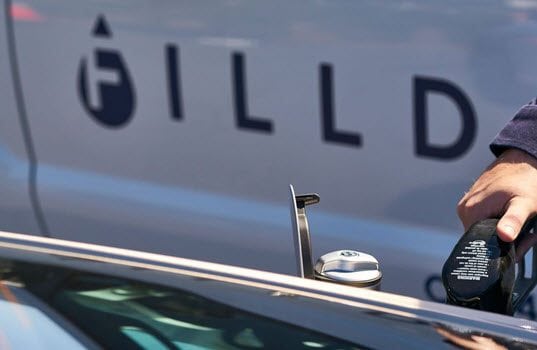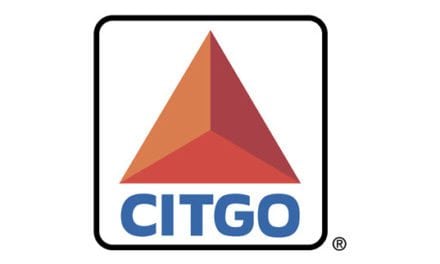By Doug Haugh
Market disruption seldom originates from obvious origins, which is one of the reasons it is so, well, disruptive. It seems pretty clear that if electric vehicles (EVs) replace gas and diesel in substantial numbers, we will need far fewer gas stations in our communities.
An interesting future to ponder, but you have to admit, this is a pretty obvious suspect. With that in mind, I have been looking for other disruptive market forces that are not so screamingly obvious.
The Disrupter You Know
Before we go there, let us deal with the prime suspect: EVs. It can and has been argued that significant growth in EVs may not be the end for gas stations. Retailers could replace current fuel dispensers with fast charging stations. These chargers would still provide value and convenience to the consumer who needs a charge away from home or who parks in the street and does not have a garage to charge in overnight.
It is pretty clear that EV owners will need public charging stations, but if you are going to stop somewhere for 20 – 30 minutes, I just cannot see consumers choosing to do so at a typical gas station. Starbucks—sure; the new Racetrac’s near where I live in Atlanta that has a nice outdoor seating area and some good food—maybe. The typical gas pumper with four to eight fuel islands—no way.
But just how big a threat are EVs anyway? The most optimistic forecasts are that in 20 years, they will be 25% of new car sales, and in 33 years—by 2050—they will be the majority of new car sales. Okay, so the gas retailer of today will have fewer customers over time, but loads of customers will still need gas.
No one is going to be putting their own gas tank in their garage to fuel at home, and Starbucks may add chargers, but let’s agree they are never adding gas. So it seems that even retailers building new stations should be fine, as long as their returns and payback models are attractive over the next 10 – 20 years. Great news: crisis averted, at least for this generation of retailers.
The Disrupter to Watch
But, what if EV’s are not the most disruptive new technology that can threaten gas stations? Maybe, just maybe, the biggest threat is the same one that is taking down countless other industries. Yes, you got it: that supercomputer in your pocket.
Mobilization is bringing change to so many industries right now that it is hard to keep up, but this mobile disruption has not applied to the fuels industry yet. Take mobile payments, which everyone said five years ago was going to be the next big wave to impact gasoline retailers. It has only now started to move the needle, and only a small fraction of consumers are using their phones to turn on the gas pump.
Once I started to look for how mobilization could impact how consumers fuel their cars, I was most surpised about how many new businesses were being created to address the potential.
No less than a dozen new startups want to steal away gas station customers by bringing the fuel directly to their vehicle (See this FMN article for a closer look at several). Importantly, the fuel is not delivered to the customer, it is delivered to their vehicle while it is parked. This approach is all about freeing up the time the consumer would have to invest in fueling their vehicle by eliminating an extra stop on the way home or on the way out of town.

Purple is one vendor of this service.
With over a dozen companies working to win over drivers, one would expect a lot of diversity in business models and pricing, and this roster doesn’t disappoint on that count. Fees or no fees? Pay by the car or by the location? Charge fees for each delivery or sell monthly memberships? Deliver regular or premium, or offer both? Compete with the price offered by the gas station around the corner or the average price across your city?
Each of these companies answers those questions a little differently, and in the past few months I have been tracking them, many have made changes and adjustments to their business models and pricing approaches.
Most of these companies are also taking a widely different approach when it comes to the physical delivery. One firm is using freelancers who agree to deliver fuel to a consumer’s car from their own car or truck; think of it like Uber’s ride sharing business model.
Others are seeking to innovate in the area of fuel storage tanks and how to work within Department of Transportation (DOT) regulations regarding hazmat placarding and driver qualifications. One is taking a rather traditional approach to the truck itself, but is positioning the service to be offered by employers as a new perk for time-pressed employees.
Interestingly, I have only found one of these companies that has even contemplated working with the existing fuels industry. Most simply see the industry as one more to be disrupted by mobile technology and a fresh perspective on consumer tastes. In direct discussions and by reading their claims, I found many of these startups seem to have limited knowledge about how the fuels industry and supply chain actually works today, and even less interest in leveraging what has already been built to service consumers in a new way.
What’s the Hold Up?
These company founders and employees also appear to be fearless, or perhaps naïve, in the face of fire codes, environmental restrictions and regulations, or they are worried about limitations imposed by property owners or local communities. I have little doubt that all of these factors will come into play if and when we see a significant number of consumers showing interest in these services.
Once consumer mobile fueling startups are “on the radar” of regulators they will come to appreciate just how difficult it is to build a business of any scale in the fuels industry and then they will find it is even harder to consistently make money off of that scale even if you can consistently interest customers in your service.
In the mean time, I feel these companies and the excited founders who started them bear watching. Their ability to disrupt the over half a trillion dollar a year US fuels industry seems unlikely but that is the point, the likely suspects are the ones that current business owners will already be prepared for, the long shots do occasionally succeed.
 Doug Haugh is currently President and Chief Strategy Officer of Mansfield Energy. The company provides energy commodities and related services to 6,000 customers in 18,000 locations across the U.S. and Canada. The company’s expertise covers a broad range of transportation and facilities energy from traditional petroleum products, compressed natural gas, renewable fuels and specialty chemicals to power and natural gas. Haugh is a frequent speaker on energy, supply chain technology and entrepreneurship. He can often be found leading general sessions or seminars at many national conferences and conventions. He also blogs on energy issues at ThinkingoOnEnergy.com. The opinions expressed there (and here) are his, and not those of Mansfield.
Doug Haugh is currently President and Chief Strategy Officer of Mansfield Energy. The company provides energy commodities and related services to 6,000 customers in 18,000 locations across the U.S. and Canada. The company’s expertise covers a broad range of transportation and facilities energy from traditional petroleum products, compressed natural gas, renewable fuels and specialty chemicals to power and natural gas. Haugh is a frequent speaker on energy, supply chain technology and entrepreneurship. He can often be found leading general sessions or seminars at many national conferences and conventions. He also blogs on energy issues at ThinkingoOnEnergy.com. The opinions expressed there (and here) are his, and not those of Mansfield.








